Risk Shifting in Financial Markets and Sustainable Finance
The contemporary literature on financial intermediation suggests that banks play an important role in the transition towards a sustainable economy. The research group ‘Risk Shifting in Financial Markets and Sustainable Finance’ contributes to this debate by studying lenders' risk shifting incentives, their choices in supporting sustainable business, and how sustainable finance and legal innovations affect firms and households.
First, we analyze how banks respond to climate transition risks. Specifically, we investigate whether banks manage these risks by offloading loans to environmentally harmful firms or by incorporating sustainability pricing provisions into loan contracts. Our ongoing research delves into the role of banking supervision in facilitating the transition to net-zero, specifically by assessing the impact of climate stress tests on banks' lending practices. We also examine how depositors, firms, and financial institutions manage various forms of biodiversity risk.
Second, we illustrate the choice between risk pricing and risk shifting through securitisation by financial institutions. From a household finance perspective, we discuss how mortgage foreclosure laws and mortgage pricing policies should be designed to mitigate moral hazard of lenders and borrowers. We also highlight the effect of zombie mortgage laws on banks and non-bank lenders, and the implications arising for housing markets.
Another line of research aims to establish evidence of how financial regulation contributes to securitisation booms, which are considered to be at the root of the recent boom and bust cycles in housing markets. Specifically, we shed light on how banking deregulation and financial development increase the probability of a bank operating an originate-to-distribute model in the lead up to the financial crisis that started in 2007.
Finally, the research group investigates the role of financial institutions in supporting firms to mitigate risk from supply chain disruptions triggered by the Covid-19 pandemic.
Workpackage 1: Do financial institutions provide sustainable finance?
Workpackage 2: How do banks choose between risk pricing and risk shifting?
Workpackage 3: The Impact of Banking Supervision and Regulation on Financial Intermediaries
Research Cluster
Financial Resilience and RegulationYour contact

- Department Financial Markets
Refereed Publications

Local Banks as Difficult-to-replace SME Lenders: Evidence from Bank Corrective Programs
in: Journal of Banking and Finance, February 2021
Abstract
In this study, we assess capabilities of different types of banks to cater to the financial needs of small and medium-sized enterprises (SMEs). Using a comprehensive dataset from an emerging economy, including the information on local banks’ corrective programs, we find that local banks remain difficult-to-replace lenders for SMEs. We show that presence of healthy local banks in an SME's vicinity immunizes the SME against the deterioration of access to bank financing linked to other local banks’ corrective programs. In contrast, large banks are unable to replace the lost lending from local competitors under corrective programs.

Is Social Capital Associated with Corporate Innovation? Evidence from Publicly Listed Firms in the U.S.
in: Journal of Corporate Finance, June 2020
Abstract
We find that social capital in U.S. counties, as captured by strength of social norms and density of social networks, is positively associated with innovation of firms headquartered in the county, as captured by patents and citations. This relation is robust in fixed-effect regressions, instrumental variable regressions with a Bartik instrument, propensity score matching regressions, and a difference-in-differences design that isolates the effects of over time variations in social capital due to corporate headquarter relocations. Strength of social norms plays a more dominant role than density of social networks in producing these empirical regularities. Cross-sectional evidence indicates the prominence of the contracting channel through which social capital relates to innovation. Additionally, we find that social capital is also positively associated with trademarks and effectiveness of corporate R&D expenditures.
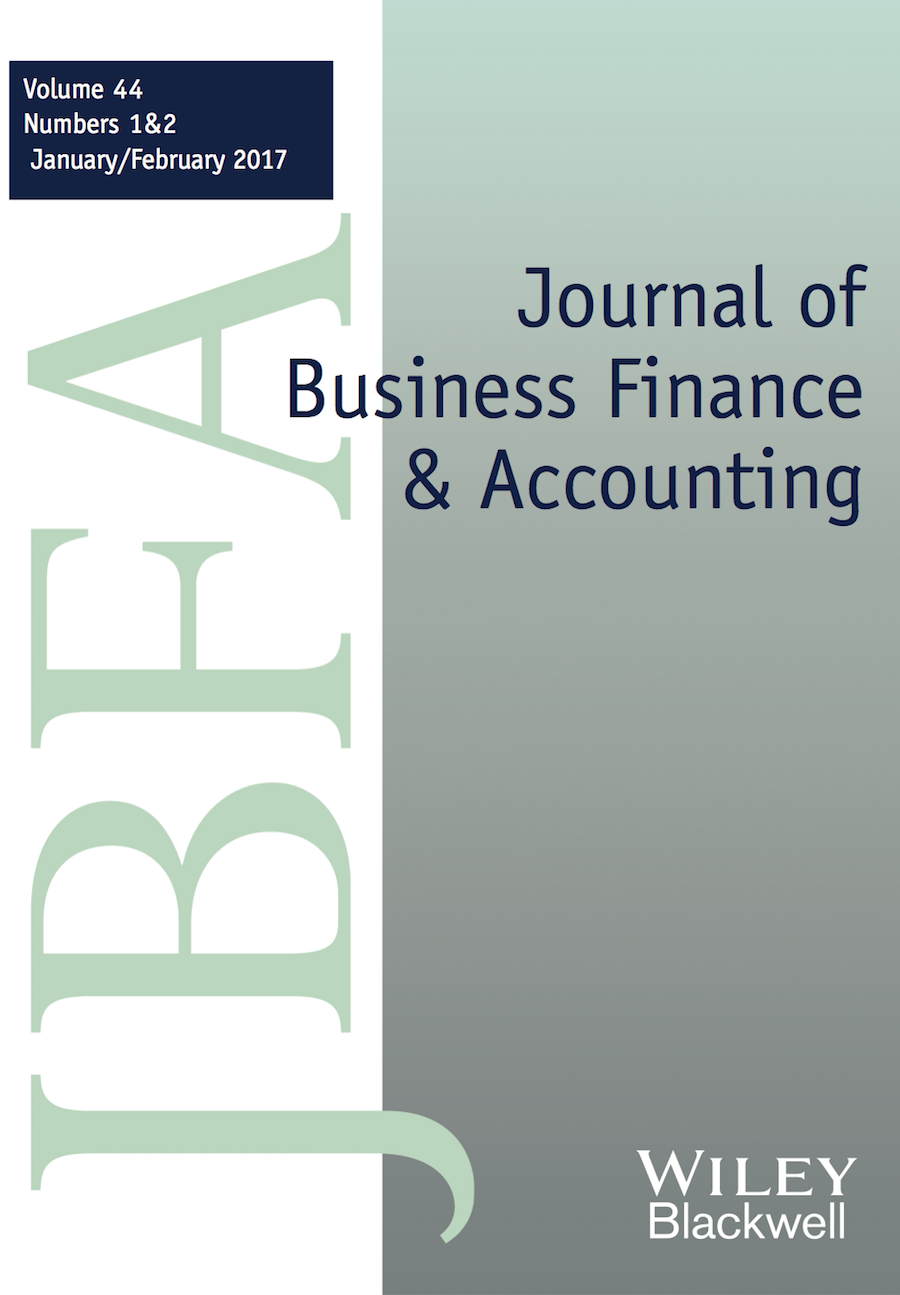
Profit Shifting and Tax‐rate Uncertainty
in: Journal of Business Finance and Accounting, 5-6 2020
Abstract
Using firm‐level data for 1,084 parent firms in 24 countries and for 9,497 subsidiaries in 54 countries, we show that tax‐motivated profit shifting is larger among subsidiaries in countries that have stable corporate tax rates over time. Our findings further suggest that firms move away from transfer pricing and toward intragroup debt shifting that has lower adjustment costs. Our results are robust to several identification methods and respecifications, and they highlight the important role of tax‐rate uncertainty in the profit‐shifting decision while pointing to an adjustment away from more costly transfer pricing and toward debt shifting.

Enforcement of Banking Regulation and the Cost of Borrowing
in: Journal of Banking and Finance, April 2019
Abstract
We show that borrowing firms benefit substantially from important enforcement actions issued on U.S. banks for safety and soundness reasons. Using hand-collected data on such actions from the main three U.S. regulators and syndicated loan deals over the years 1997–2014, we find that enforcement actions decrease the total cost of borrowing by approximately 22 basis points (or $4.6 million interest for the average loan). We attribute our finding to a competition-reputation effect that works over and above the lower risk of punished banks post-enforcement and survives in a number of sensitivity tests. We also find that this effect persists for approximately four years post-enforcement.
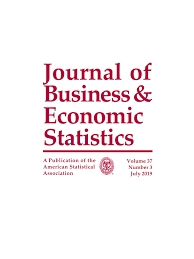
Too Connected to Fail? Inferring Network Ties from Price Co-movements
in: Journal of Business and Economic Statistics, No. 1, 2019
Abstract
We use extreme value theory methods to infer conventionally unobservable connections between financial institutions from joint extreme movements in credit default swap spreads and equity returns. Estimated pairwise co-crash probabilities identify significant connections among up to 186 financial institutions prior to the crisis of 2007/2008. Financial institutions that were very central prior to the crisis were more likely to be bailed out during the crisis or receive the status of systemically important institutions. This result remains intact also after controlling for indicators of too-big-to-fail concerns, systemic, systematic, and idiosyncratic risks. Both credit default swap (CDS)-based and equity-based connections are significant predictors of bailouts. Supplementary materials for this article are available online.
Working Papers
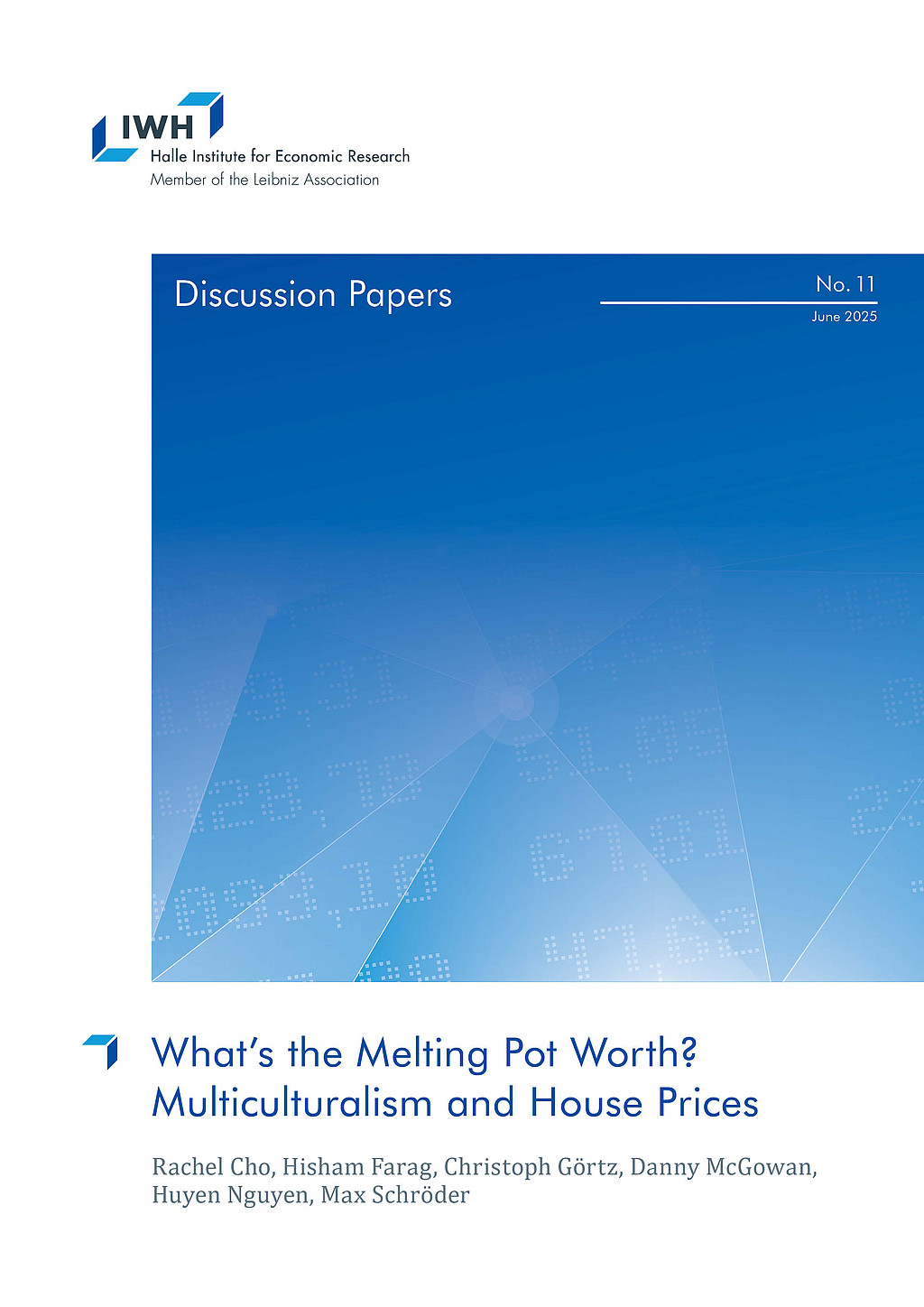
What’s the Melting Pot Worth? Multiculturalism and House Prices
in: IWH Discussion Papers, No. 11, 2025
Abstract
<p>Is there a multicultural neighborhood price premium? We exploit plausibly exogenous variation in British colonization patterns in Northern Ireland during the early 1600s which created neighborhoods of varying religious composition that persists until today. These religious groups are culturally distinct, but are observationally equivalent ethnically and socioeconomically. A standard deviation increase neighborhood-level multiculturalism raises house prices by 9.6%. Multiculturalism raises property prices by increasing asset liquidity and housing demand as a wider spectrum of society demand houses in these areas. The findings and mechanism contrast sharply with prior evidence showing negative relationships due to homophily, social networks, and identification challenges.</p>
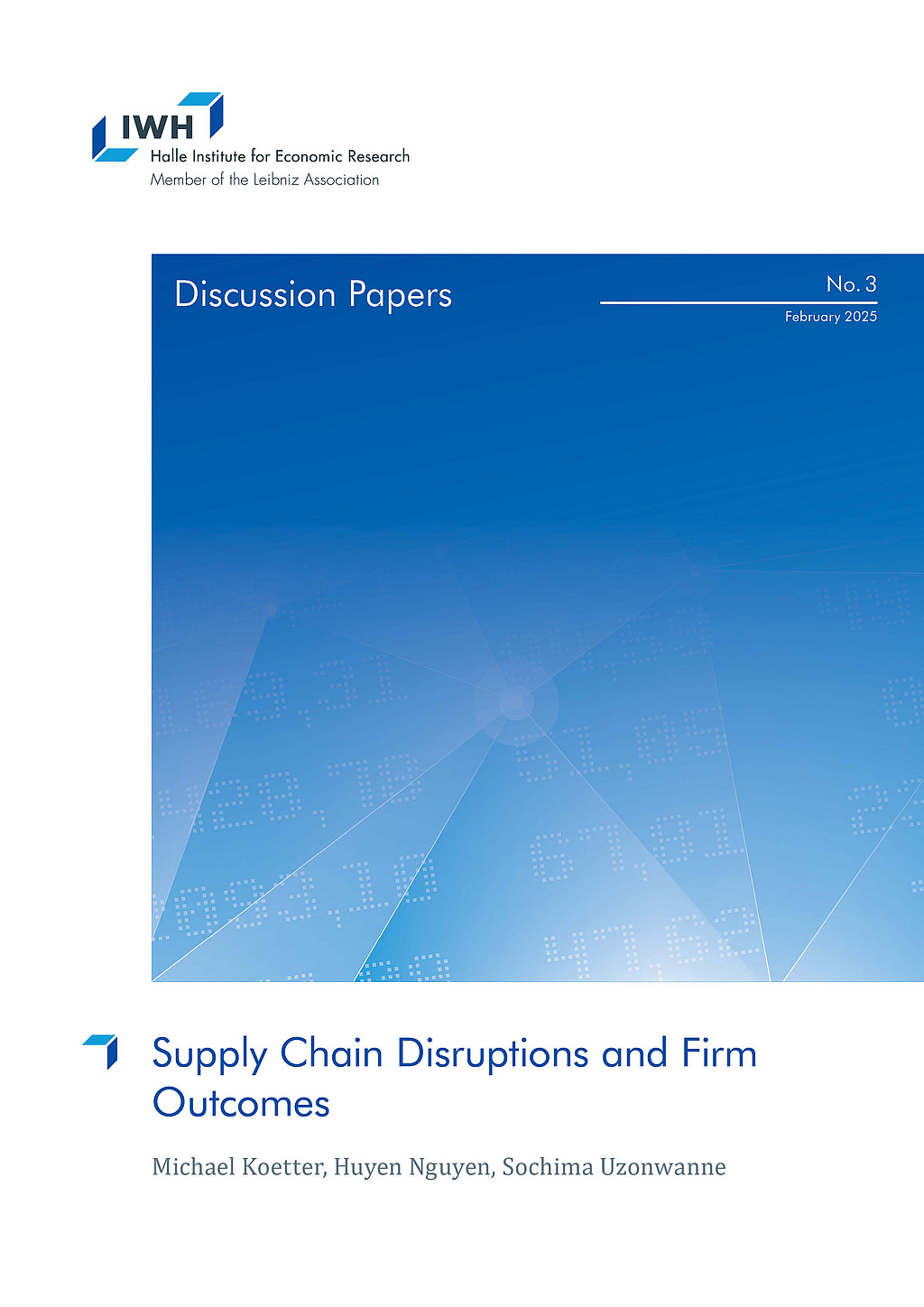
Supply Chain Disruptions and Firm Outcomes
in: IWH Discussion Papers, No. 3, 2025
Abstract
<p>This paper examines how firms’ exposure to supply chain disruptions (SCD) affects firm outcomes in the European Union (EU). Exploiting heterogeneous responses to workplace closures imposed by sourcing countries during the pandemic as a shock to SCD, we provide empirical evidence that firms in industries relying more heavily on foreign inputs experience a significant decline in sales compared to other firms. We document that external finance, particularly bank financing, plays a critical role in mitigating the effects of SCD. Furthermore, we highlight the unique importance of bank loans for small and solvent firms. Our findings also indicate that highly diversified firms and those sourcing inputs from less distant partners are less vulnerable to SCD.</p>
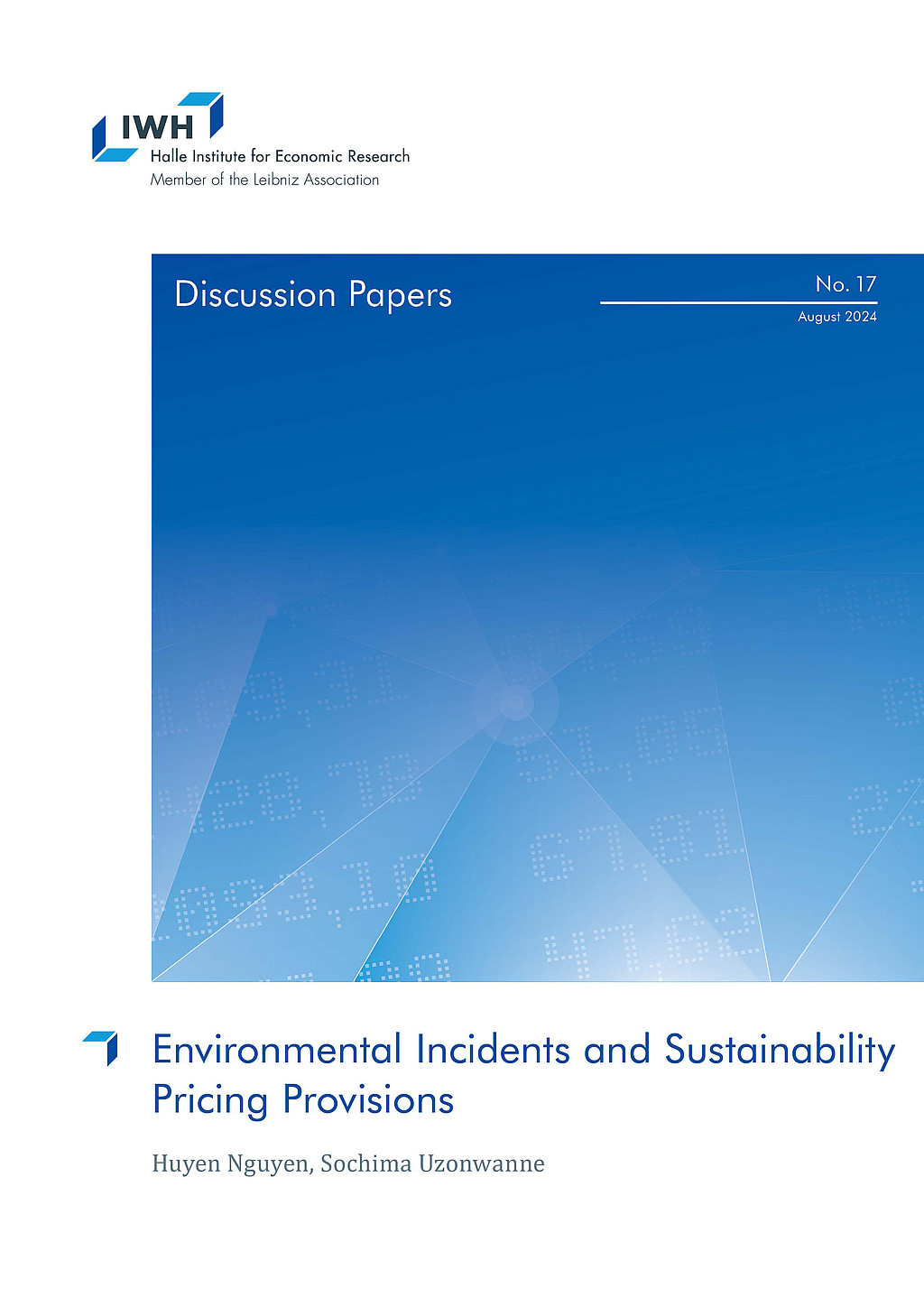
Environmental Incidents and Sustainability Pricing
in: IWH Discussion Papers, No. 17, 2024
Abstract
<p>We investigate whether lenders employ sustainability pricing provisions to manage borrowers’ environmental risk. Using unexpected negative environmental incidents of borrowers as exogenous shocks that reveal information on environmental risk, we find that lenders manage borrowers’ environmental risk by conventional tools such as imposing higher interest rates, utilizing financial and net worth covenants, showing reluctance to refinance, and demanding increased collateral. In contrast, the inclusion of sustainability pricing provisions in loan agreements for high environmental risk borrowers is reduced by 11 percentage points. Our study suggests that sustainability pricing provisions may not primarily serve as risk management tools but rather as instruments to attract demand from institutional investors and facilitate secondary market transactions.</p>
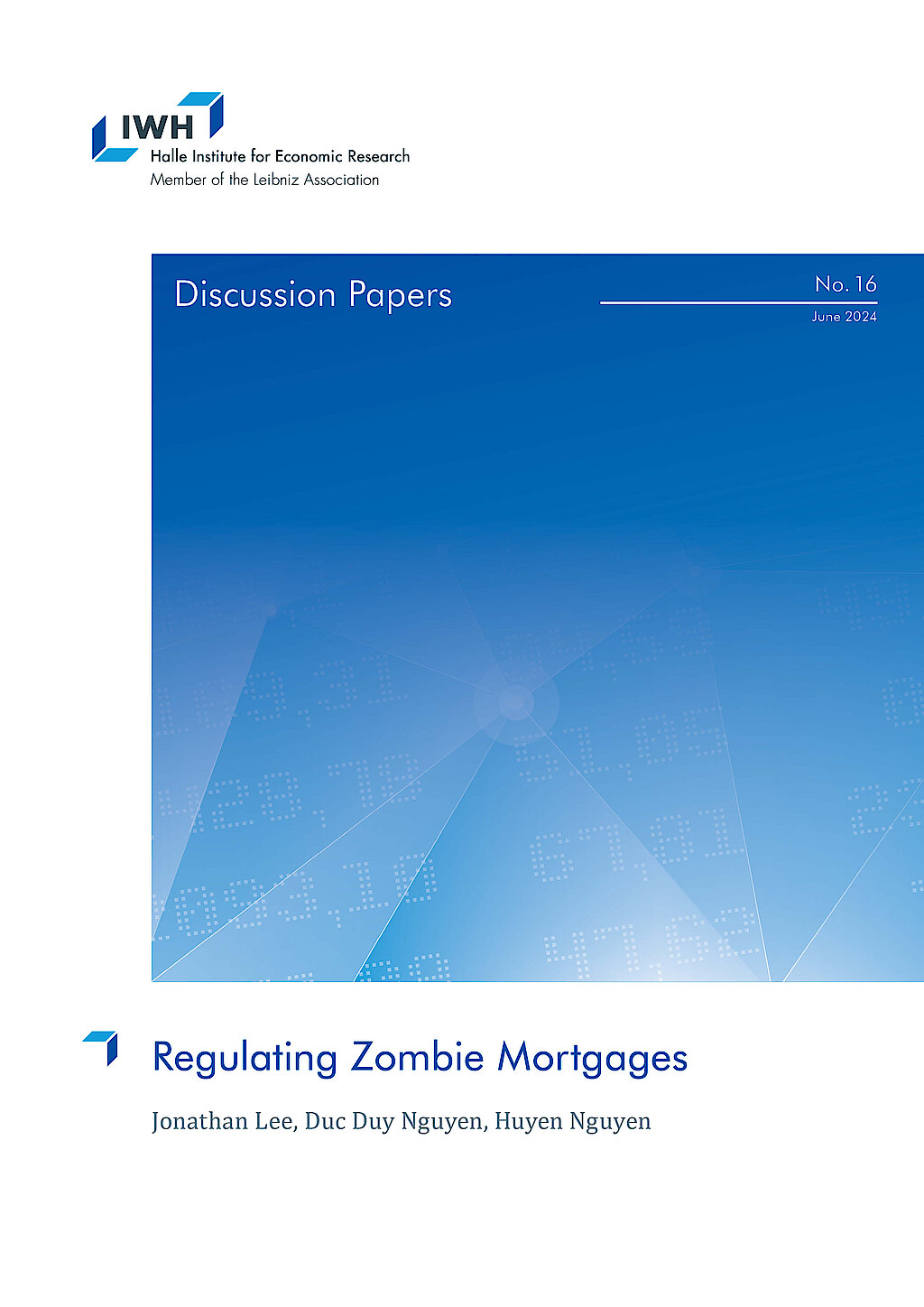
Regulating Zombie Mortgages
in: IWH Discussion Papers, No. 16, 2024
Abstract
Using the adoption of Zombie Property Law (ZL) across several US states, we show that increased lender accountability in the foreclosure process affects mortgage lending decisions and standards. Difference-in-differences estimations using a state border design show that ZL incentivizes lenders to screen mortgage applications more carefully: they deny more applications and impose higher interest rates on originated loans, especially risky loans. In turn, these loans exhibit higher ex-post performance. ZL also affects lender behavior after borrowers become distressed, causing them to strategically keep delinquent mortgages alive. Our findings inform the debate on policy responses to foreclosure crises.
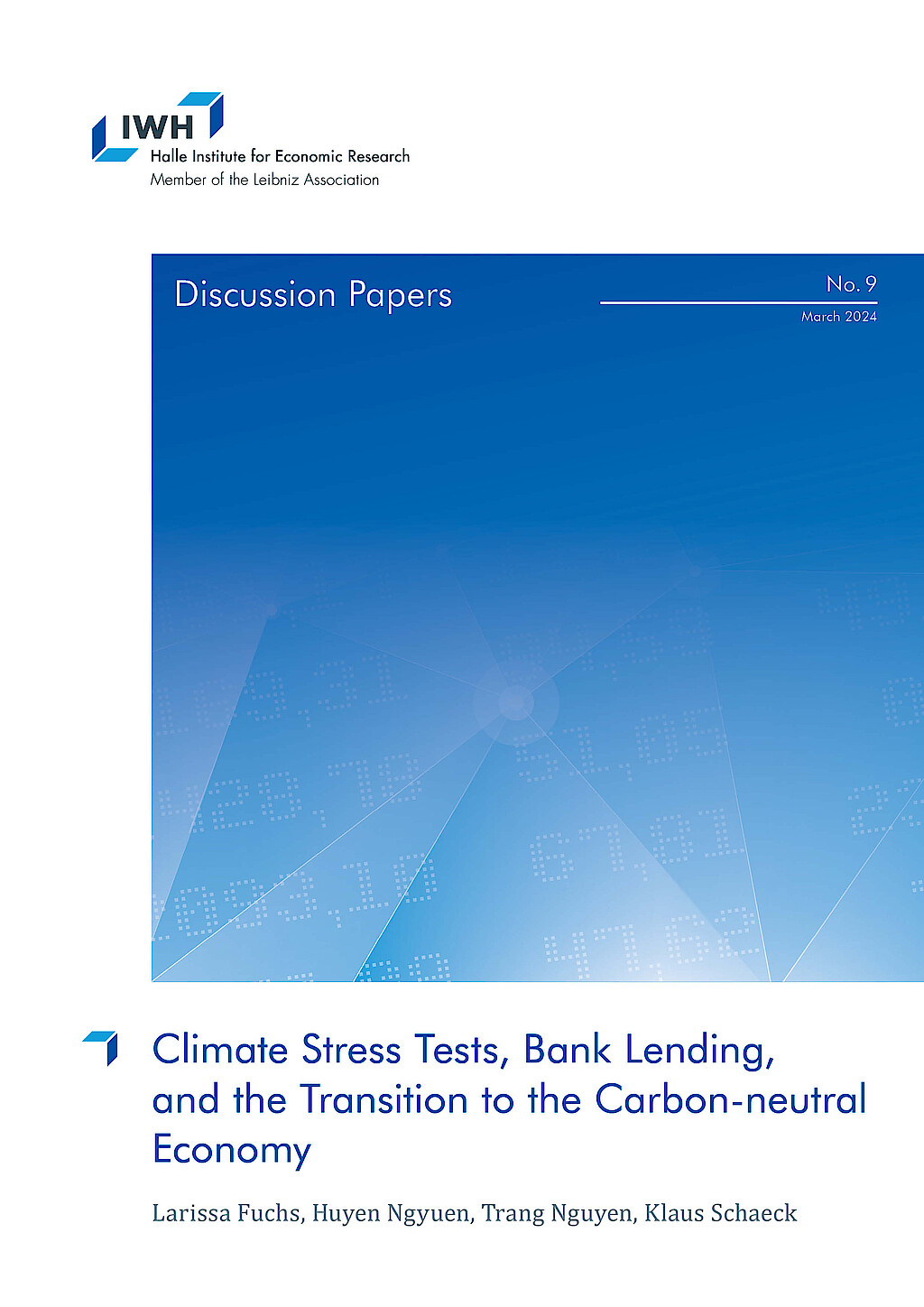
Climate Stress Tests, Bank Lending, and the Transition to the Carbon-neutral Economy
in: IWH Discussion Papers, No. 9, 2024
Abstract
We ask if bank supervisors’ efforts to combat climate change affect banks’ lending and their borrowers’ transition to the carbon-neutral economy. Combining information from the French supervisory agency’s climate pilot exercise with borrowers’ emission data, we first show that banks that participate in the exercise increase lending to high-carbon emitters but simultaneously charge higher interest rates. Second, participating banks collect new information about climate risks, and boost lending for green purposes. Third, receiving credit from a participating bank facilitates borrowers’ efforts to improve environmental performance. Our findings establish a hitherto undocumented link between banking supervision and the transition to net-zero.





